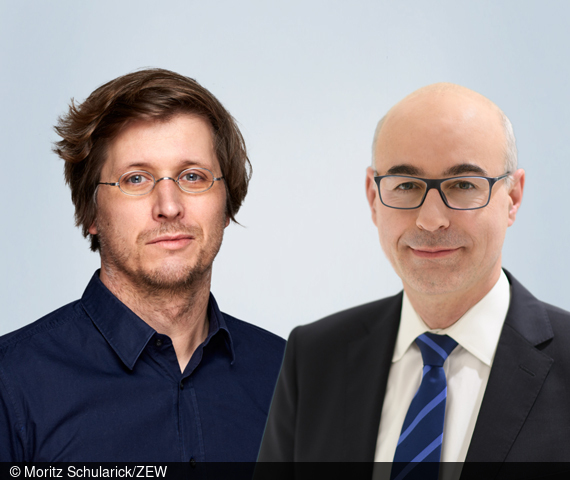Embargo on Russian Energy?
ResearchA Debate Between Economists Moritz Schularick and Achim Wambach
Can Germany afford to sanction Russia with a ban on energy imports? This discussion between Professor Moritz Schularick of the University of Bonn and Professor Achim Wambach, president of ZEW, originally appeared in the 22 March 2022 issue of the financial daily ‘Handelsblatt’.
Germany is discussing a ban on Russian energy imports. Is this a good idea?
Schularick: We should impose an immediate embargo on Russian natural gas, oil and coal. Such a measure would reduce Germany’s GDP by three per cent this year, resulting in a loss of around 120 billion euros. This may sound like a lot, but we could easily manage the fallout. It would not be the end of the world.
Wambach: Your study has merits, but it provides an incomplete picture. The full version of the study indicates a GDP impact of just 0.3 per cent. Perhaps this low figure didn’t sit right with you, so you performed a second calculation with a simpler model. However, both calculations neglect important details.
Could you elaborate?
Wambach: The study fails to consider unemployment or inflation. However, an even bigger problem relates to the assumed substitutability of natural gas. If we want to stop importing natural gas from Russia, then we need replacement sources. But this will be much more difficult to achieve than assumed by the study.
Schularick: No, it won’t be. Policymakers wrongly assume that it will be incredibly difficult to wean ourselves off Russian natural gas. This is an error in judgement. Past crises demonstrate that it is easier to find replacement energy sources than one originally presumes.
Are economic policy advisers perhaps overstepping their bounds when it comes to assessing energy embargos?
Wambach: Economists have a responsibility to draw attention to the economic impacts of drastic policy measures such as this one. However, to obtain a realistic assessment of our ability to switch to alternate sources of energy, we also need to listen to market experts and impacted firms. At times like these, economists should be aware of the limits to their analytical abilities.
Schularick: No one is claiming that economists are in a position to settle world-political conundrums with a few fancy models. However, the negative impact to the German economy will not be nearly as severe as the doomsday soothsayers at certain business associations would have us believe.
Ultimately, it seems the issue is whether we or Putin will suffer more from an embargo.
Schularick: One third of the Russian budget comes from taxes on oil and gas. If these revenues disappear, Russia will have a major financial problem.
Wambach: You wrongly assume that Gazprom will honour existing contracts given a Western embargo. If I tell a supplier on whom I am dependent that I plan to cut my purchases by a third, that supplier just might increase prices by a third.
Schularick: That’s why there needs to be a complete embargo.
Wambach: But in advocating for such a measure, you neglect to consider whether this is strategically wise: I would have seen the logic for such a measure prior to the outbreak of the war – as a means of preventing hostilities – but the justification now appears tenuous. The German government has been stressing day and night that it wants to become less dependent on Russian energy. And the EU has vowed to reduce Russian natural gas imports by two thirds within a year. So if Putin knows that in six months he will no longer be able to sell energy to us – no matter what he does – why would he be motivated to change his behaviour?
Schularick: The crucial question is: Can we make Putin realize that the invasion was a mistake? This seems highly unlikely, given all that has transpired. The damage to the German economy will be that much higher if we delay in implementing an embargo. Waiting six months will only make the matter more expensive. If we have done nothing by the time autumn rolls around, then we will truly be dependent on Russian natural gas.

